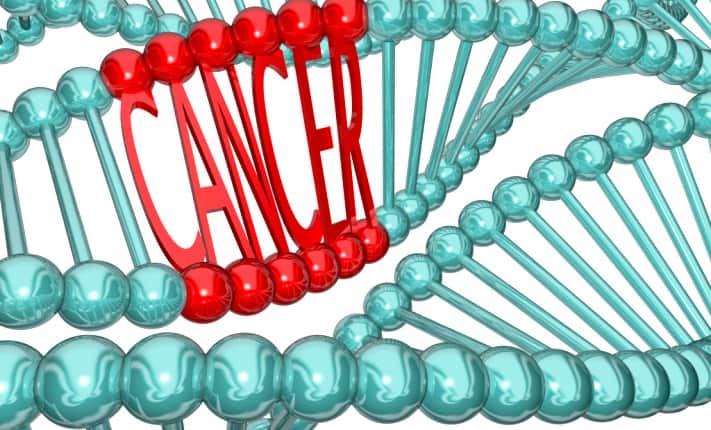First UK patients receive experimental mRNA therapy for cancer: Cancer patients in the UK are receiving a new therapeutic to help their bodies recognise and fight cancer cells as part of a global trial.
The first UK patients received the experimental mRNA therapy – a type of immunotherapy treatment called mRNA-4359 – at Imperial College Healthcare NHS Trust as part of a phase 1/2 clinical trial.[1] The trial aims to evaluate its safety and potential for treating melanoma, lung cancer and other ‘solid tumour’ cancers.
The treatment is designed using messenger RNA (mRNA) and works by presenting common markers of tumours to the patient’s immune system.
This should help to train patients’ immune systems to recognise and fight cancer cells expressing these markers, but also potentially eliminate cells that may suppress the immune response.
Cancer vaccines have the potential to make conventional immunotherapy more effective, and a number of cancer vaccines are entering clinical trials across the globe. These fall into one of two categories: personalised cancer immunotherapies, which rely on extracting a patient’s own genetic material from their tumours; and therapeutic cancer immunotherapies, like mRNA-4359, which are ‘ready made’ and tailored to a particular type of cancer.
The Mobilize trial is run in partnership between Imperial College London and Imperial College Healthcare NHS Trust, with the first patients in the UK receiving the treatment at the NIHR Imperial Clinical Research Facility at Hammersmith Hospital.
At this stage, the primary aim of the study is to assess if this new mRNA therapy is safe and tolerated by patients, either when it’s administered alone or in combination with an existing cancer drug called pembrolizumab – which is a type of immune checkpoint inhibitor.
But researchers are also investigating whether the combination of treatments can actively shrink tumours in patients with certain types of lung and skin cancer.
Researchers say that while the experimental therapy is still in the early stages of testing, they hope it may ultimately lead to a new treatment option for difficult to treat cancers, should the approach be proven to be safe and effective.
Dr David Pinato, a Clinician Scientist at Imperial College London and Consultant Medical Oncologist at Imperial College Healthcare NHS Trust, and investigator of the UK arm of the trial, said: “Despite huge advances in screening, detection and care, it’s estimated that half of us will experience cancer in our lifetime.
“New mRNA-based cancer immunotherapies, such as mRNA-4359, offer a new avenue for recruiting the patient’s own immune system to fight their cancer. This research is still in the early stages and may be a number of years from being available to patients, but this trial is laying crucial groundwork that is moving us closer towards new therapies that are potentially less toxic and more precise. We desperately need these to turn the tide against cancer.
“We’re only able to do this kind of research thanks to our patient volunteers – their involvement is crucial. We’re grateful to all of the patients who take part and make these trials possible.”
An 81-year-old man from Surrey with treatment-resistant malignant melanoma was the first person in the UK to receive mRNA-4359 in late October.[2]
The patient, who wishes to remain anonymous, said:
HOW DOES IT FEEL TO TAKE PART?
“I was pleased to be offered a chance to take part in a new trial. Fundamentally, it’s a relief. I knew from my original diagnosis that I had something that was never going to go away, or unlikely to go away.
“I had a different immunotherapy, I had radiotherapy; the only thing I didn’t have was chemotherapy. So, the options were either do nothing and wait, or get involved and do something.”
ON BEING THE FIRST PATIENT
“It’s been OK. Obviously you can’t refer back to anybody else, but hopefully it’s going to be given to many more patients and it is going to be successful. The other thing I realised from being on a trial before was that just because one person has a reaction of one kind, it doesn’t mean that everybody will.
“It was a little strange thinking, well, ‘how are they going to measure this?’. But of course, obviously the whole point of a trial like this is to take something that you’ve done preliminary tests on and give it to patients to see what happens.”
ON THE TRIAL EXPERIENCE
“Taking part in a trial gives you a sense that you’re contributing to something which can help a lot of other people. You’re also clearly doing it for personal reasons, but it’s a mixture of those two.
“I’m extremely grateful to the hospitals and the individuals that are running these trials. You know, somehow we have to change the fact that one in every two people get cancer at some point and we have to make the odds better.”
Dr Nichola Awosika, a member of the clinical research delivery team that delivered the first dose of mRNA-4359 in the UK at the NIHR Imperial Clinical Research Facility at Hammersmith Hospital, said: “It’s exciting to be involved with the Mobilize trial and provide the first doses to patients in the UK. It has been a great experience to contribute to the development of innovative new treatments like this and it all depends on the willingness of patients taking part, so we are grateful for their participation.”
Nearly 1 in 2 people in the UK will be diagnosed with cancer in their lifetime.[3] While a range of therapies are available to treat patients, including chemotherapy and immune therapies, cancer cells can become resistant to drugs, making tumours more difficult to treat.
The UK Government has an agreement with several pharmaceutical companies to facilitate the development of novel, anti-cancer mRNA-based immunotherapies. Several such therapies are currently in development aimed at treating resistant cancers. All are in the early phases of clinical testing, with trials aimed at evaluating the feasibility, safety, and preliminary activity of the approach.
Researchers at Imperial College London alongside clinical staff at Imperial College Healthcare NHS Trust have successfully set up the first clinical site in the UK to help deliver this strategy and assess the potential for ‘off-the-shelf’ mRNA cancer immunotherapies, beginning a trial for the treatment of solid tumors.
Patients on the trial will receive either mRNA-4359 alone, or mRNA-4359 and Pembrolizumab, and will be followed up for a period of up to 34 months. Preclinical testing in both cell and animal models of cancer provided initial evidence that mRNA-4359 had an effect on the immune system, providing a rationale for it to be offered to patients in early-phase clinical trials.
The study is a Phase 1/2, non-randomised trial, so all patients receive the same treatment. It is also an open-label trial, so clinicians and patients know what they are receiving – unlike blinded trials, where patients don’t know which treatment they are receiving.
Professor Peter Johnson, NHS national clinical director for cancer, said: “The NHS is at the vanguard of trials of cancer vaccines, which could be revolutionary if we are successful in vaccinating people against their own cancers to prevent them growing back after treatment.
“This trial at Imperial is a brilliant example of the pioneering work happening at hospitals up and down the country, with teams of experts looking into ways of harnessing the body’s own immune system to treat a range of cancers.
“We all know how worrying a cancer diagnosis can be for people and their loved ones, but access to these groundbreaking trials – alongside other innovations to diagnose and treat cancers earlier – provides hope, and we expect to see thousands more patients taking part in trials of this kind over the next few years.”
Health and Social Care Secretary Victoria Atkins said: “Cancer can affect any of us – be it through devastating diagnosis, the difficulties faced during treatment or the loss of a loved one – but huge progress is being made, and survival rates are at an all-time high.
“This vaccine has the potential to save even more lives while revolutionising the way in which we treat this terrible disease with therapies that are more effective and less toxic on the system. It underlines our position as a life sciences superpower and our commitment to research and development.
“As we mark World Cancer Day today, I want to extend my deepest gratitude to the researchers behind this groundbreaking development and the patients taking part in the trial which could make such a difference to countless lives.”
The Imperial trial is sponsored by pharmaceutical company Moderna and is set to recruit patients globally over the next three years.
The trial is being undertaken through the Moderna-UK Strategic Partnership, which is bringing mRNA vaccine manufacturing to the UK and building resilience to future health emergencies. Under the 10-year partnership with the government, Moderna has also committed substantial investment to research and development, which includes running a large number of clinical trials, such as this one, in the UK.
Patients and anyone interested in taking part in clinical trials can visit the National Institute for Health and Care Research web portal to be a part of research https://bepartofresearch.nihr.ac.uk/
[1] Patients received the investigational mRNA cancer immunotherapy (mRNA-4359) as part of the Mobilize trial, sponsored by Moderna.
[2] This patient wishes to remain anonymous and is not available for media interviews. Unfortunately we are unable to offer patient case studies from this trial to media.
[3] Cancer Research UK – https://www.cancerresearchuk.org/health-professional/cancer-statistics-for-the-uk#heading-Three
How do mRNA vaccines and therapies work?
mRNA vaccines use messenger RNA (mRNA) to deliver a message to the body’s immune cells, training them to recognise and respond to a threat. mRNA is a naturally occurring substance in the body that provides instructions to your cells for making proteins.
Whereas the COVID-19 vaccines trained immune cells using mRNA of a protein on the outside of the virus, these experimental mRNA cancer immunotherapies incorporate mRNA of common marker proteins found in tumours.
Unlike personalised cancer treatments, which rely on extracting a patient’s own genetic material from their tumours, therapeutic mRNA cancer immunotherapies can be described as an ‘ready made’ vaccines.
By training the patient’s immune system to recognise the common markers of the type of cancer they have, it could enable their cells to fight it more effectively.
The research is still at an early stage (what’s called a Phase 1/2 trial) where the clinical team will mainly focus on safety of the treatment, and side effects.
But if this early-stage research is successful, the hope is that it could one day lead to ‘off the shelf’ mRNA immunotherapies designed by cancer type.
- RV3-BB rotavirus vaccine at birth boosts microbiome - 8th May 2025
- No Mind Left Behind: Support the Carers - 4th May 2025
- Climate change causes longer pollen seasons in capital cities - 4th May 2025


